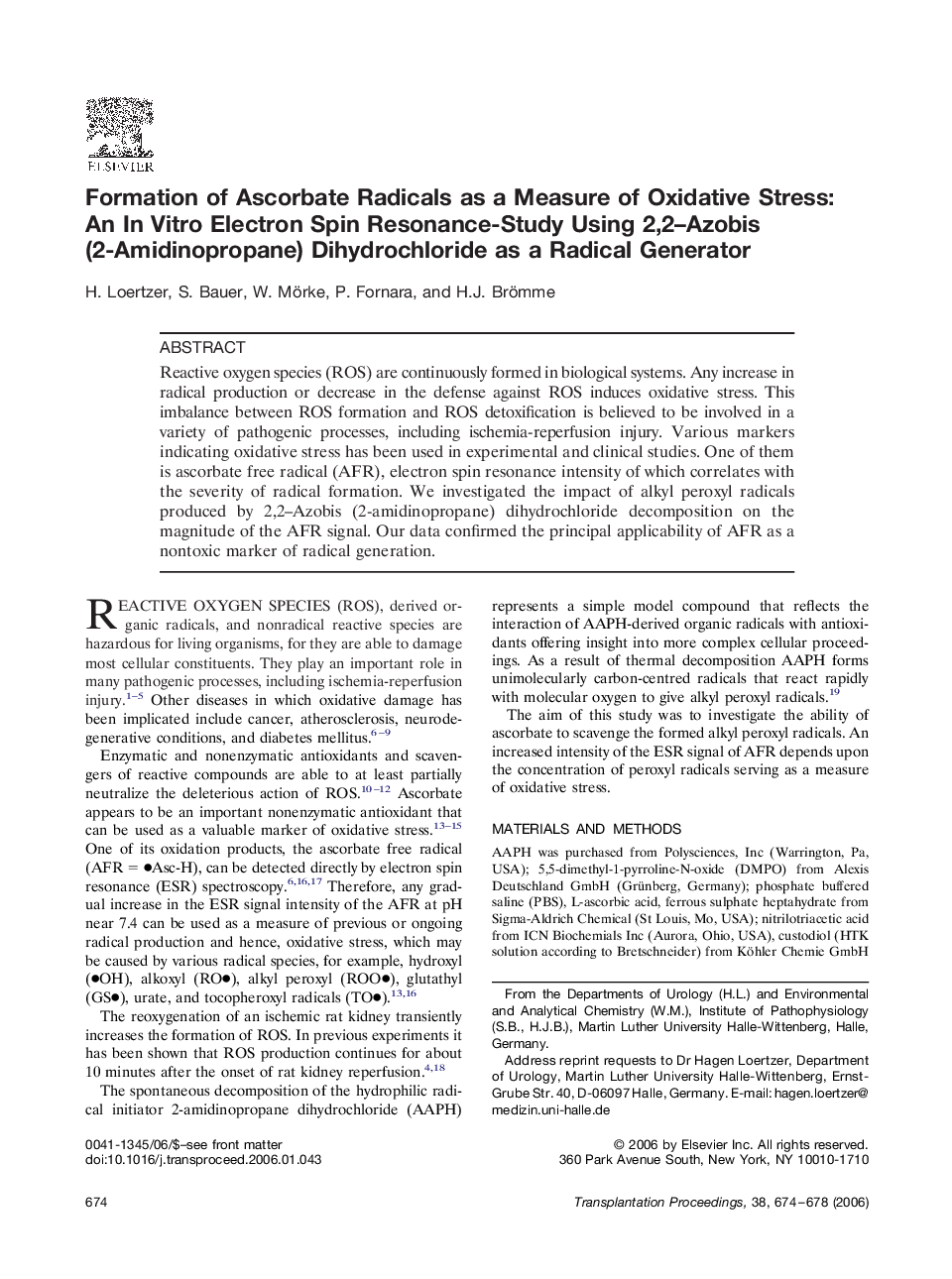| Article ID | Journal | Published Year | Pages | File Type |
|---|---|---|---|---|
| 4262982 | Transplantation Proceedings | 2006 | 5 Pages |
Reactive oxygen species (ROS) are continuously formed in biological systems. Any increase in radical production or decrease in the defense against ROS induces oxidative stress. This imbalance between ROS formation and ROS detoxification is believed to be involved in a variety of pathogenic processes, including ischemia-reperfusion injury. Various markers indicating oxidative stress has been used in experimental and clinical studies. One of them is ascorbate free radical (AFR), electron spin resonance intensity of which correlates with the severity of radical formation. We investigated the impact of alkyl peroxyl radicals produced by 2,2–Azobis (2-amidinopropane) dihydrochloride decomposition on the magnitude of the AFR signal. Our data confirmed the principal applicability of AFR as a nontoxic marker of radical generation.
